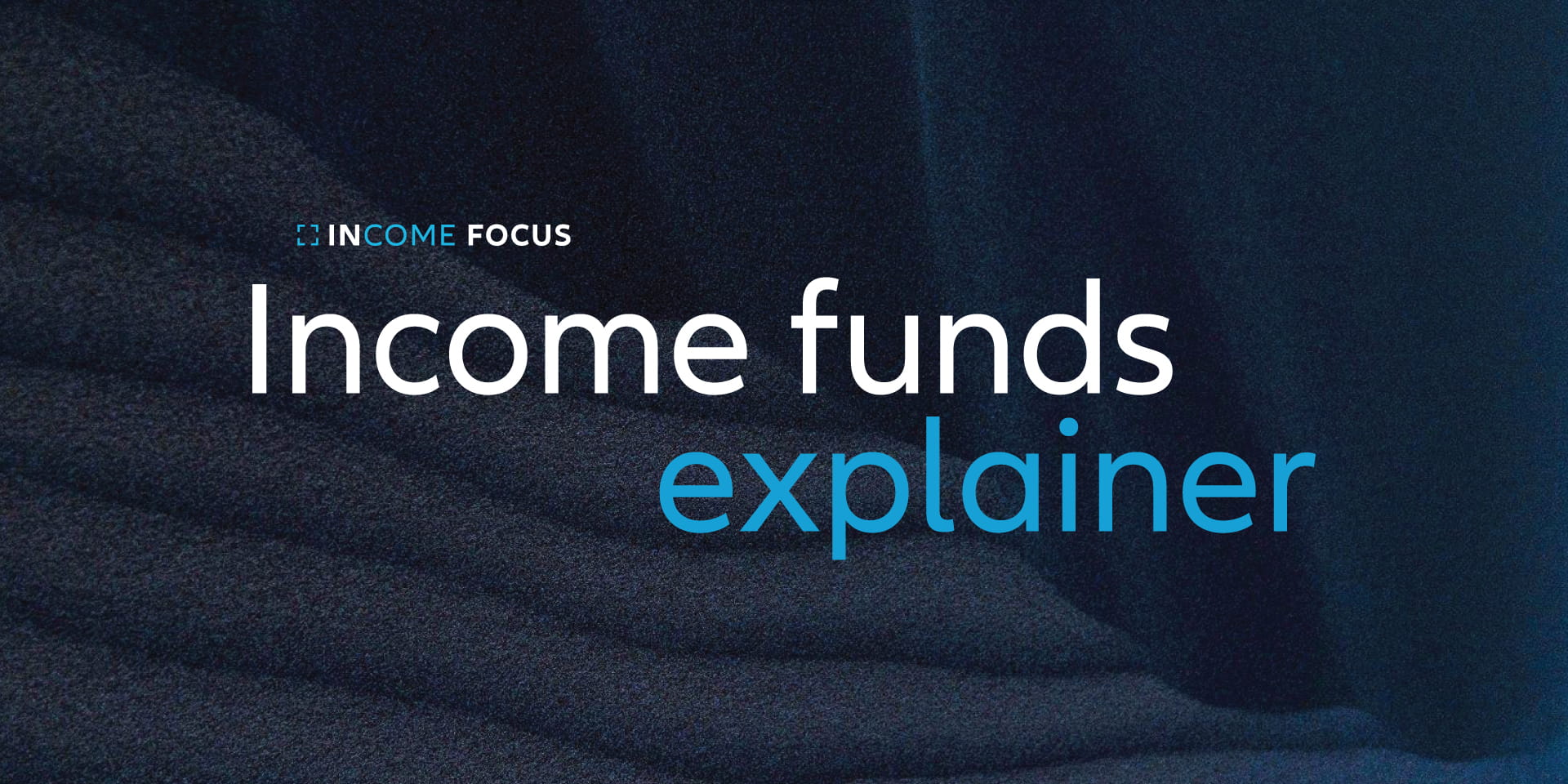Income Focus
Income funds explainer


For some investors, having a regular additional source of money may be helpful – whether it is to pay for education, housing or care or to supplement a salary or pension. In such circumstances, income funds may be an investment option to consider.
What are income funds?
Income funds are designed so that the returns they make are paid out to investors regularly (usually monthly or annually) rather than being reinvested. That way, income funds aim to provide a steady and stable stream of returns.
How are they different to accumulation funds?
Accumulation funds reinvest earnings in the fund. Because the funds are reinvested, accumulation funds typically offer a greater chance for capital appreciation over time. Investors in income funds have the flexibility to choose whether to reinvest the income they receive or use the money to support their immediate financial needs.
Income or accumulation fund? An investor’s checklist to consider
Income funds may be suitable for investors who want to:
- Supplement income from a job or pension.
- Pay for something now: education, housing, care, etc.
- Enjoy a relatively stable, regular income, with the trade-off of a likely lower final value of investments.
Accumulation funds may be right for investors who:
- Already gain sufficient income from their job or pension to meet their everyday needs.
- Are targeting a financial goal years away such as retirement.
- Want to maximise the potential for their investment to grow over time.
How do income funds work?
In general, there are three categories of income funds providing income through different sources:
1. Equity funds
investing in high-quality, established firms that pay a regular dividend and exhibit lower volatility in their stock price.
2. Fixed income funds
investing in bonds issued by a government or company which pay income via regular interest payments known as “coupons”.
3. Multi asset funds
investing in a mix of assets, including stocks, bonds and other asset classes such as commodities and private equity.
Dividend payments and bond coupons have provided generally steady sources of return for income funds in recent years
S&P 500 composite – dividend payments per month
Source: LSEG Datastream, AllianzGI Global Capital Markets and Thematic Research. Data as at 27 February 2025.
Bloomberg Euro Aggregate – coupon rates (%)
Source: Bloomberg, AllianzGI. Data as at 31 December 2024.
Why consider income funds?
We see three major reasons why income funds are worth considering now:
1. Managing market volatility
Because of the requirement to provide regular payouts, income funds have to be managed in a disciplined way, which can lead to a measured and steady approach in volatile markets.
2. Anticipating financial pressures
Ageing populations are putting pressure on government finances. Retirees in many countries already rely on alternatives tostate pensions – and we see this trend accelerating across the major economies.
3. Beating inflation
Inflation can erode the value of cash deposits over time. Income funds aim to provide returns that exceed inflation over a period of years.
The income alternative
Overall, we think income funds may provide a compelling way to support a financial need or lifestyle choice.
What is the right income fund to choose?
Factor in return targets and risk appetite when choosing an income fund
Balancing risk and return
The most appropriate fund will be determined by how much income an investor would like to receive but also how much risk they are willing to take. Funds with a higher weighting in equities, or riskier areas of fixed income such as emerging markets or high yield, may offer higher returns. However, such assets may also be prone to volatility during changing market conditions.
Many funds seek to balance returns with stability. That may mean balancing equities with defensive assets, such as bonds with relatively low interest-rate risk, convertible securities or commodities. By diversifying across asset classes, the aim is to smooth out the effects of any turbulence in markets.
Whatever fund an investor chooses, the objective is to provide a steady income across different market conditions.






